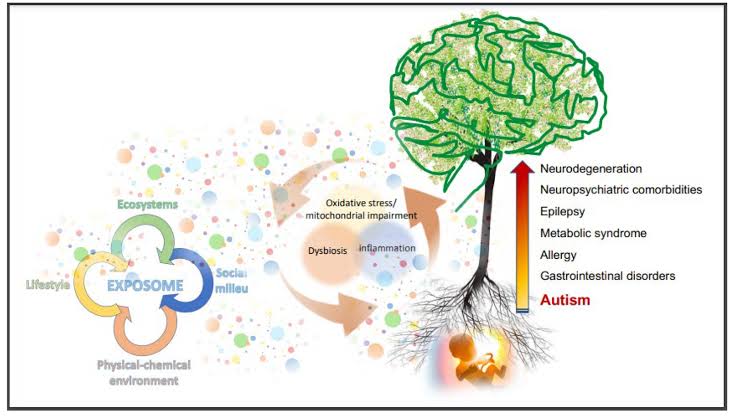The world of genetics constantly reveals how tiny changes in our DNA can have significant effects on our health. One such notable genetic change is the PTEN 135Leu mutation, often associated with the groundbreaking research of geneticist Anthony Wynshaw-Boris. This mutation, located in the PTEN gene, plays a crucial role in cancer development and certain neurodevelopmental disorders. In this blog post, we’ll explain what the PTEN 135Leu mutation is, why Wynshaw-Boris’ research is important, and how this mutation impacts health.
What is PTEN 135Leu?
The PTEN gene serves as a key regulator of cell growth. It helps prevent cells from dividing uncontrollably, which could lead to tumor formation. When functioning normally, PTEN keeps our cells in check and plays a vital role in preventing cancer. However, the 135Leu mutation changes the structure of PTEN, replacing an amino acid at position 135 with leucine (Leu). This small alteration can drastically affect how the PTEN protein works, increasing the risk of various diseases, particularly cancer.
PTEN’s Function in the Body
In simple terms, PTEN acts like a brake for cells, making sure they don’t grow too quickly or become cancerous. When a mutation like 135Leu occurs, the brakes might fail. This failure means that cells can grow and divide unchecked, leading to the formation of tumors. That’s why mutations in the PTEN gene, including PTEN 135Leu, are commonly found in several types of cancer, including breast, prostate, and thyroid cancers.
How Does PTEN 135Leu Impact Health?
The PTEN 135Leu mutation doesn’t just affect cancer risk; it can also play a role in developmental disorders. Here’s how it impacts different aspects of health:
1. Increased Cancer Risk
The PTEN 135Leu mutation removes the gene’s ability to suppress tumors effectively. As a result, individuals with this mutation face a higher risk of developing certain cancers, particularly in tissues where PTEN is heavily involved, such as the breast, prostate, and thyroid. In fact, several studies link PTEN mutations to Cowden syndrome, a condition that increases the risk of various cancers and benign growths (hamartomas).
2. Neurodevelopmental Disorders
Apart from cancer, PTEN mutations, including 135Leu, are connected to disorders in brain development. Children with this mutation may experience neurodevelopmental issues like autism spectrum disorder (ASD) and macrocephaly, a condition where the head is abnormally large. Wynshaw-Boris’ research has been instrumental in highlighting this connection.
3. Physical Symptoms
Besides cancer and developmental issues, individuals with the PTEN 135Leu mutation may also show physical abnormalities. For instance, some might develop benign growths in various tissues or experience changes in head size, a characteristic often seen in conditions like Bannayan-Riley-Ruvalcaba syndrome.
Wynshaw-Boris’ Research on PTEN and Developmental Disorders
Anthony Wynshaw-Boris, a renowned geneticist, has focused much of his research on understanding how mutations in genes like PTEN contribute to developmental disorders. His work has been pivotal in uncovering the link between PTEN mutations, like 135Leu, and neurodevelopmental conditions.
Wynshaw-Boris has shown that PTEN mutations do more than just increase cancer risk. His studies suggest that PTEN is also vital for proper brain development. When PTEN’s function is disrupted by mutations such as 135Leu, the brain’s development can go off course, leading to conditions like autism and intellectual disabilities.
PTEN and Autism
One of the most significant contributions from Wynshaw-Boris’ research is the connection between PTEN mutations and autism. Children with PTEN mutations may exhibit both physical signs, such as an unusually large head, and behavioral symptoms associated with autism spectrum disorder. Understanding this link helps doctors identify children who may benefit from early intervention and specialized support.
How to Manage Health Risks with PTEN 135Leu Mutation
If you or a loved one has a PTEN 135Leu mutation, it’s important to take proactive steps to manage potential health risks. Here’s what you can do:
1. Regular Cancer Screenings
Individuals with a PTEN mutation, like 135Leu, should undergo frequent cancer screenings, especially for breast, prostate, and thyroid cancers. Early detection significantly improves outcomes, so doctors often recommend heightened surveillance for people with PTEN mutations.
2. Monitor Development in Children
If a child has a PTEN mutation, it’s crucial to monitor their developmental milestones. Early intervention, such as speech therapy, behavioral therapy, and educational support, can make a big difference in addressing developmental delays linked to PTEN mutations.
3. Work with Genetic Counselors
For families with a history of PTEN mutations or associated conditions, consulting a genetic counselor can provide valuable guidance. They can help determine whether genetic testing is appropriate and offer insights into managing the associated health risks.
Early Diagnosis and Testing for PTEN Mutations
Genetic testing is the best way to confirm if you or someone in your family carries the PTEN 135Leu mutation. If you have a family history of cancer or developmental disorders, especially those linked to PTEN, testing can be crucial. A confirmed diagnosis allows doctors to develop personalized care plans that can reduce your risk and help you manage any existing conditions.
Conclusion
The PTEN 135Leu mutation is a tiny but powerful genetic change that has far-reaching implications for both cancer risk and neurodevelopmental disorders. Thanks to the work of researchers like Anthony Wynshaw-Boris, we now have a clearer understanding of how PTEN mutations like 135Leu can impact health. Whether it’s increasing cancer risk or contributing to developmental disorders like autism, early diagnosis and proactive management are essential.
If you have a PTEN 135Leu mutation, don’t lose hope. By working with healthcare professionals, genetic counselors, and specialists, you can take steps to monitor and manage the associated risks, improving both your health and quality of life.
FAQs
1. What is the PTEN 135Leu mutation?
The PTEN 135Leu mutation occurs when leucine replaces an amino acid at position 135 in the PTEN gene, impairing the gene’s tumor-suppressing function.
2. How does the PTEN 135Leu mutation increase cancer risk?
The mutation disrupts PTEN’s ability to regulate cell growth, leading to uncontrolled cell division, which can increase the risk of cancers like breast, prostate, and thyroid cancer.
3. What did Wynshaw-Boris discover about PTEN mutations?
Wynshaw-Boris’ research highlighted the role of PTEN mutations in neurodevelopmental disorders, particularly autism and macrocephaly, alongside cancer risks.
4. Can children with PTEN mutations develop autism?
Yes, PTEN mutations, including 135Leu, are linked to autism spectrum disorder, often accompanied by physical symptoms like an enlarged head.
5. How can PTEN mutations be diagnosed?
Genetic testing can identify PTEN mutations. If you have a family history of related cancers or developmental disorders, consult with a genetic counselor to discuss testing.
6. What should I do if I have the PTEN 135Leu mutation?
Regular screenings for cancer and developmental monitoring in children are crucial. A healthcare provider can develop a personalized care plan to help manage the associated risks.

